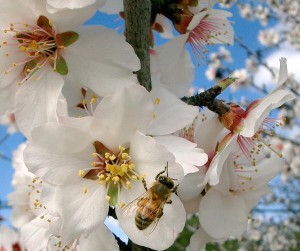Meditation. How important is it, really? What could be so important about just sitting and breathing? Well, a lot actually and its more than just sitting and breathing. Mediation, or mindfulness practice has been an essential everyday practice for thousands of years and something that many Americans may be missing from their daily life’s practice. With the fast pace of the American lifestyle and the glorification of busy in our culture, it can be difficult to juggle the stressful tasks from day to day, but meditation can help. Not only can mediation help you manage stress, but it has been shown to lower blood pressure and relieve symptoms of anxiety and depression.
 Meditation is about becoming more present and conscious in your life so that even in the midst of all of your stress, you feel calm and at peace. That means while you are making dinner and your child is pulling on your leg while your mother is calling you on the phone, you are completely present in that moment and are at peace (yes, this is possible).
Meditation is about becoming more present and conscious in your life so that even in the midst of all of your stress, you feel calm and at peace. That means while you are making dinner and your child is pulling on your leg while your mother is calling you on the phone, you are completely present in that moment and are at peace (yes, this is possible).
During a meditation session you will find a comfortable place to sit or lie down and you will clear your mind of your thoughts. For some, this may take some practice and you might not be able to fully clear your mind of your thoughts, but this will not interfere with that success of your mediation, because after-all you are already making a CONSCIOUS effort to become more mindful, so try not focusing on the fact that you may not be able to fully clear your mind. You will observe your thoughts, rather than forming an opinion about them, which only creates more thoughts. So now you are sitting and observing your thoughts until your mind is clear (maybe not fully and that’s okay) and then you will turn your focus on your breathing; truly feeling each breath flowing in and out bringing life into your body. If a thought arises, you are just observing it, whatever that thought may be. You are tuning into your body and feeling the energy that is buzzing inside of you. You are feeling yourself connected to the life around you. If an angry thought arises, you observe it and become more aware of it, but you are not judging it or letting it fuel more thoughts. You bring your attention to any tension in the body and you simply let it go. You feel comfortable and safe. This is, in a nut-shell essentially meditation. You may practice it for an hour or for just 15 minutes a day, or longer if you choose. The more you take a ‘time-out’ from your busy life to practice this mindfulness, the more you will become conscious of your stress and you will gain more peace in your daily life.
There are many different methods of meditative practices with the method I just described involving generating an emotional state for the purpose of becoming more aware of that state such as anger, hatred, etc- or for cultivating a particular mental response to various phenomena such as compassion. Then with awareness, comes consciousness and in turn helps you to be more at peace within yourself.
The more you experience mindfulness and the more comfortable you become with the practice of meditation, the more you may feel free to explore more about its history, or not, the choice is yours. There is a vast and deep history with meditation that some may find fascinating. Some authors that have written on the topic of meditation have suggested the hypothesis that the emergence of the capacity for focused attention, an element of many methods of meditation, may have contributed to the final phase of human biological evolution.



